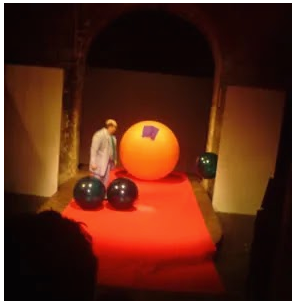Here, for all broadbanders, is a clue to the subject of today's post:
Now I don't like that word - I think purity in art is a pretty spurious notion. But it's the first word that comes to mind when describing the attraction of something done badly but with heart (which is absolutely not what "Inland Empire" is… It is peerlessly surefooted. It is magnificent. That is my point. I'm just saying it evolved out of Trash, it didn't Adam and Eve itself.) Maybe when critics talk about "purity" they actually mean novelty. They are simply seeing something untainted by any resemblance to anything seen previously. And while "Inland Empire" is strung with all the old Lynch favourites - the sudden appearance of a scary face... the inexplicably happy prostitutes... the confused and terrified witness to something confusing and terrifying... the brutal, arbitrary shifts in Hollywood lifestyle... the phobia of having a stranger strike up a conversation with you - all these old tropes are executed more convincingly, and indeed less camply, than Lynch has ever managed before. And so the film is a novelty. A sublime novelty. A sublime novelty with, I'd like to note, a candid understanding of sadness. And a sadness that manages to be pervasive without ever lapsing into tenderness.
Sadness isn't tender. It is a polluter. Sadness is madness. It is absolutely the same thing as madness. Sadness is madness.
So here, finally, is the beautiful and talented Danny Schlesinger (Homer Simpson in the most seen of the many real-life Simpsons virals) who I saw the three nights ago in The Lounge, taming wild balloons.

No comments:
Post a Comment